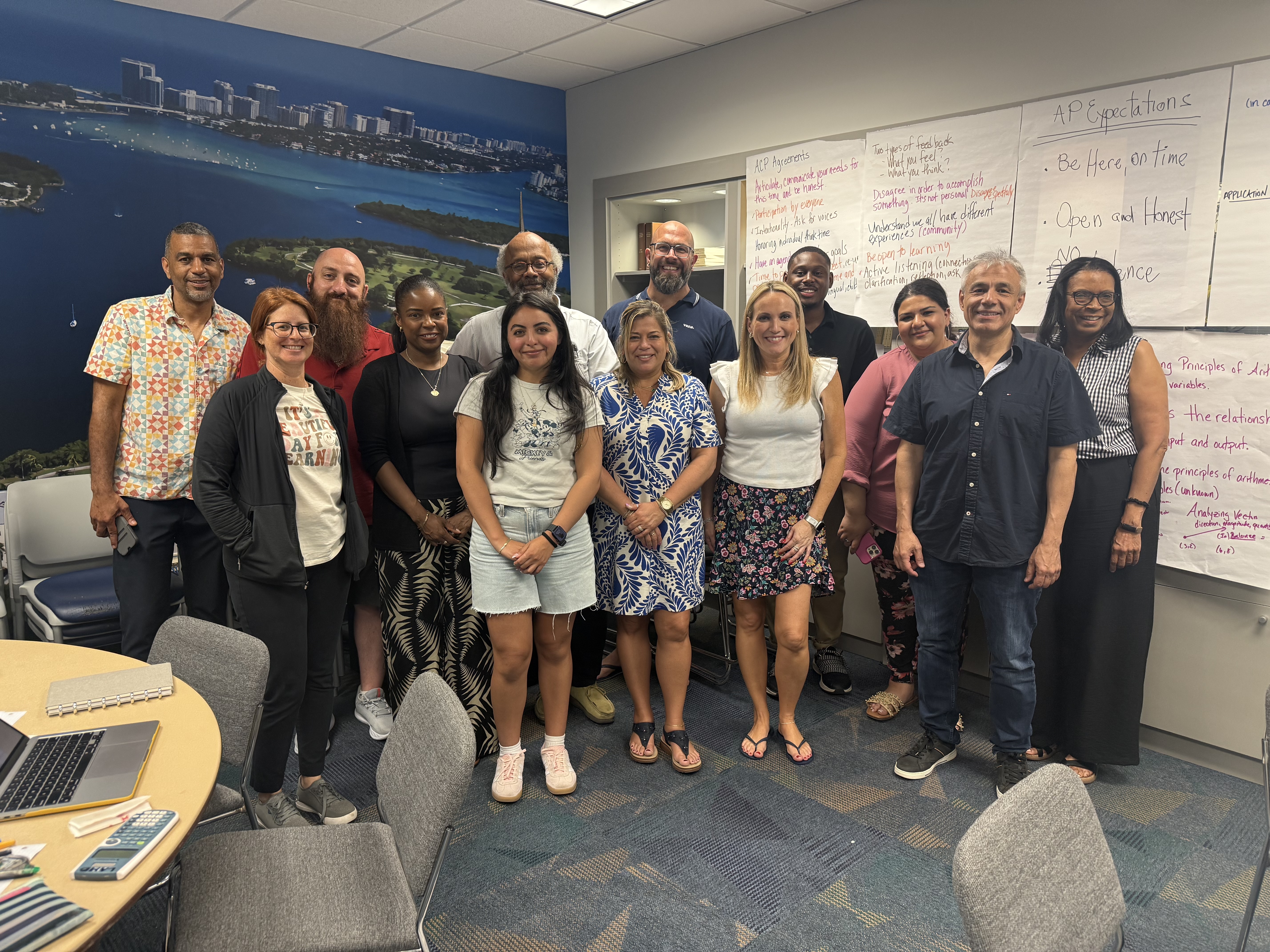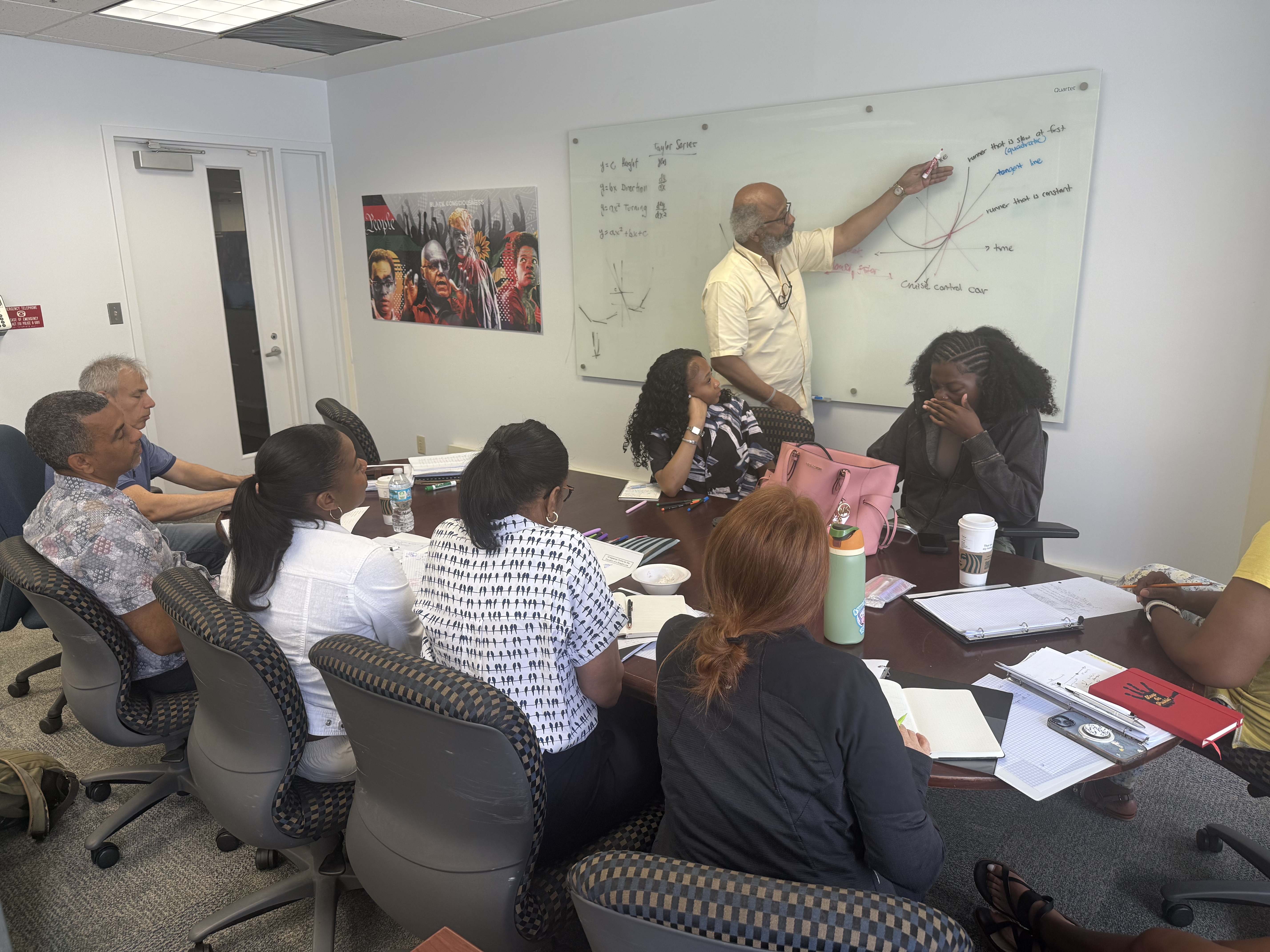
At the Biscayne Bay Campus of Florida International University, educators and organizers from across the country gathered for a two-week convening to advance a powerful idea: Instead of a privilege reserved for a select group of students, calculus is a form of mathematical literacy that should be within reach for every student.
From June 22 through July 3, the Bob Moses Research Center for Math Literacy through Public Education hosted the Accessible Calculus Project (ACP) Summer Convening in collaboration with the Algebra Project. Participants included high school teachers, college faculty, Math Literacy Workers, and STEM education advocates from Georgia, New Jersey, New York, and beyond.
The ACP is a three-year, National Science Foundation-funded collaboration between the Algebra Project, the Center for Innovation in STEM Education Research at Kennesaw State University, and the National Society of Black Engineers (NSBE). The project is designed to demonstrate that calculus can be made accessible to a broader population of students by reimagining how and when it is introduced. Rather than beginning with advanced abstraction, ACP embeds calculus ideas in Algebra II and grounds them in accessible, meaningful representations.
The two-week experience was shaped by real-time collaboration, rigorous engagement with mathematical concepts, and design thinking around the future of calculus instruction. Sessions were led by experienced Algebra Project educators and mathematicians, with participants working through the project's Five-Step Curricular Process and exploring geometric foundations for differential and integral calculus.

Reflecting on the current structure of calculus education, Bill Crombie, Director of Professional Development for the Algebra Project, offered this perspective:
"Calculus still operates under a logic of meritocracy, where only a small subset of students are granted access to it by the end of high school. But this is a choice, not a mathematical necessity. There is no mathematical foundation for privileged access to calculus. It is based on historical precedent and institutional decisions. We can choose differently."
The Accessible Calculus Project builds on the foundational work of Bob Moses and the Algebra Project, which successfully reframed early access to Algebra from a merit-based reward system into a literacy that all students deserve. Moses challenged the gatekeeping role Algebra played and helped establish it as a necessary stepping stone for full participation in American life. The ACP now extends this vision, pushing against similar barriers that have long surrounded Calculus and demonstrating what becomes possible when we rethink who mathematics is for and how it is taught.
The Bob Moses Research Center played a central role in bringing people together for this work. "We think of the Moses Center as space to gather, to learn, to build," said Brian Williams, Executive Director of the Center. "This convening made that vision real. People showed up ready to work. They left with shared language, deeper understanding, and new relationships to carry this work forward."
By the close of the two weeks, what had emerged was a deeper knowledge of calculus and a growing network of educators committed to transforming the conditions under which students encounter math. The Accessible Calculus Project continues to serve as a demonstration of what is possible when we ask different questions, design with purpose, and believe in every student's capacity to thrive in mathematical spaces.